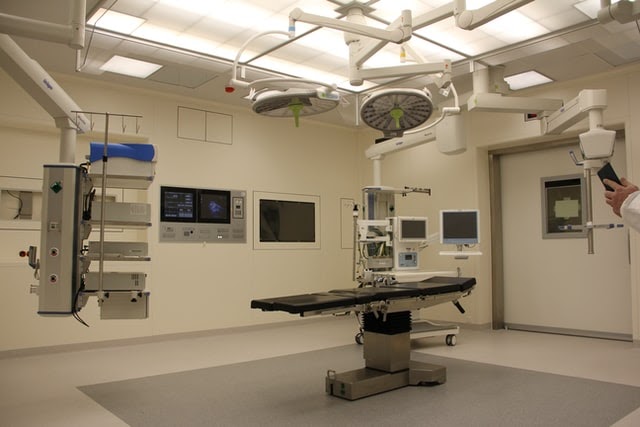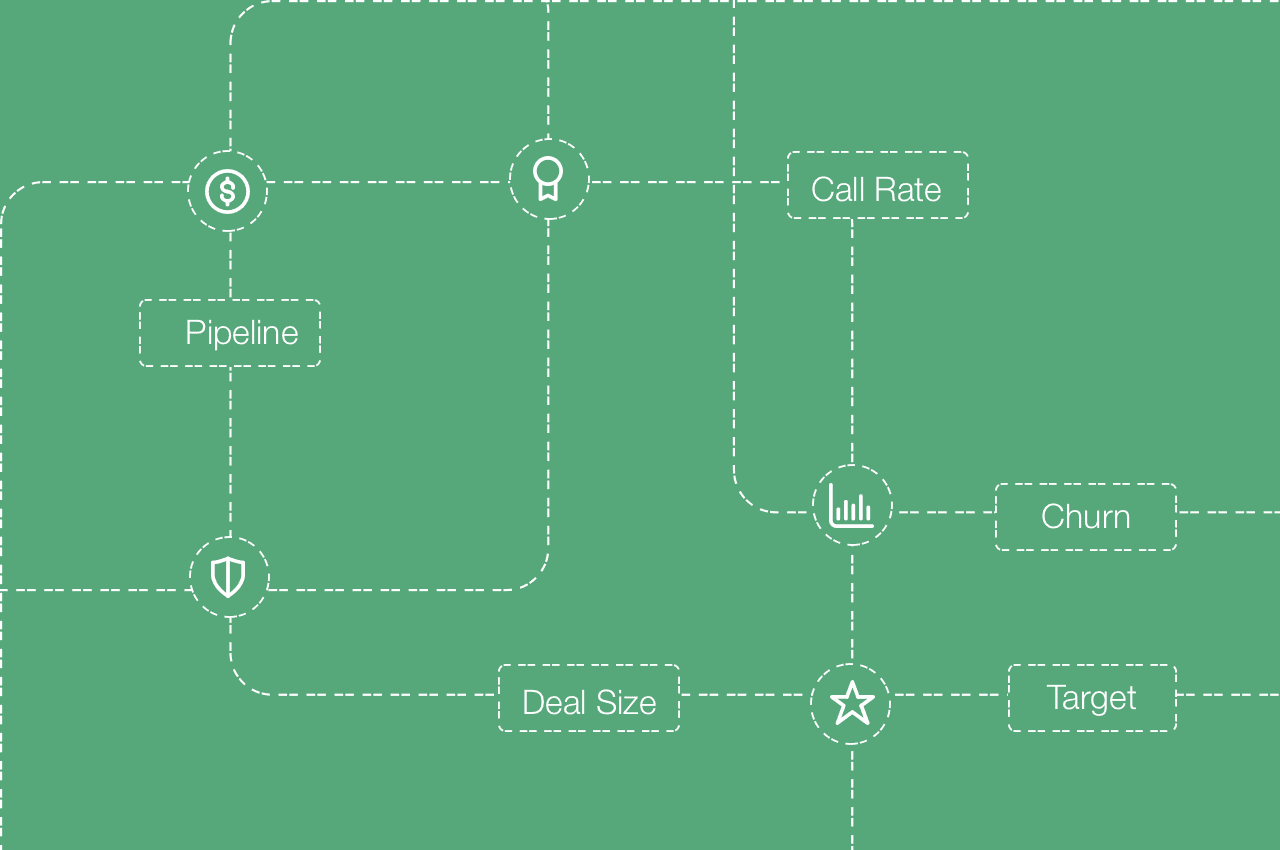Summary
Explore key KPIs every medical device organization should monitor to optimize operations, sales effectiveness, and profitability.
For a medical devices company, it is extremely essential to build a reputation as the provider of world-class quality products and services. This helps in creating a competitive advantage and fuels your organizational growth.
To build such a reputation in the market, your leadership team needs to keep a track of certain crucial KPIs and improve on them consistently. One of the best ways to consistently track and improve these numbers is to gamify the KPIs.
To help you with this, we have listed down 15 KPIs that are specific to the medical devices industry
For each of these KPIs we have answered the following questions:
About the KPI
How frequently should you measure it?
What target can you set for it?
How to assign points and declare winners upon achieving the target
Note: These are indications of how these KPIs can be structured. However, this can change from market to market, from organization to organization, depending on your current goals.
Engagement with Customers
Engaging with customers has become all the more important since COVID. There are different activities through which your sales reps can engage with your customers and drive your brand’s awareness amongst them. Establish these below KPIs and gamify them in order to motivate your sales teams to consistently engage with your customers.
These activities can be conducted virtually or face-to-face.
1. Presentations to HCPs
About the metric: Presentations help in making your customers understand your company, your products, and services more clearly. With this metric, motivate your sales teams and clinical teams to give presentations to a group of HCPs (physicians, nurses, technicians, etc). Track the number of presentations given by each team over a period of time. These presentations can be on:
Products
Clinical papers
Case presentations
Success stories
Frequency of measuring: Quarterly Target: Set a target for each team to give at least one presentation in a quarter Points: Award 20 points per presentation
2. Workshop for HCPs
About the metric: Workshops are a great way to connect with HCPs and educate them on your products and services. Use this metric to keep a track of the number of customer engagement workshops conducted by your salespeople.
This is especially helpful to track when multiple salespeople combine their efforts together to bring many HCPs into a workshop.
Frequency of measuring: Quarterly
Target: Set a target for sales reps to conduct at least one workshop in a quarter
Points: Award 50 points per workshop conducted
3. Meetings Held
About the metric: The more meetings your sales reps have with HCPs, the greater is the brand recall and hence, more sales. Use this metric to encourage your sales reps to hold meetings with the HCPs. Track the number of meetings done by each sales rep.
Frequency of measuring: Weekly
Target: Set a target for each rep to hold 5 meetings per week
Points: Award 10 points for each meeting held
4. HCP Follow-ups
About the metric: It’s crucial that your sales reps follow-up with all the HCPs on-time who are scheduled for follow-up. For example, consider there is a technician from a diagnostic center who is scheduled to be met on 10th and then again on 20th of this month. By keeping a track of this metric, you will be able to ensure that a sales rep meets this technician on exactly those dates. This helps in creating a good impression and a trustworthy relationship with your customers/ prospects.
Frequency of measuring: Daily
Target: Each sales reps should aim to complete 100% of all the follow-ups assigned to her on-time
Points: 10 points per follow-up done on-time
Learning KPIs
Knowledge is important for sales teams in the medical devices industry. It gives them the confidence to have meaningful conversations with HCPs. Create KPIs related to learning and track these KPIs to create a world-class sales team. Such KPIs can be Product A Knowledge Score which measures the knowledge a salesperson has on Product A.
5. Knowledge Quotient
About the metric: Medical devices being a very knowledge intensive industry, track and improve your sales reps’ knowledge on
Foundational knowledge
Clinical data
Market updates
Competitor information
Sales processes
Conduct a short quiz test every day with 3 questions focusing on 1 topic at a time. This will help your salespeople to recall crucial information and can be part of your regular training process.
Frequency of measuring: Daily
Target: To answer all the questions in the quiz correctly
Points: Award 2 points per correct answer
Note: You can also gamify these quizzes. Click here to learn how to conduct gamified assessments
6. Sales Conversation Skills
About the metric: Evaluate and improve your sales reps’ sales conversation skills. These could be
Introducing your product to the HCP
Handle objections like price objections effectively
Negotiation skills
Assign a coaching assignment to your sales reps and ask them to record a video responding to it. In the video coaching, you can ask them to,
Pitch a product by sharing an interesting story related to it
Or effectively handle a sales objection
Or address any difficult sales situation
Once their response videos are submitted, their managers or coaches can evaluate and provide helpful feedback for improvement. They can also select a particularly good video from a sales rep as “Best Video” and share it with everyone as a means of peer learning. This process is highly effective in improving your reps’ sales conversation skills
Frequency of measuring: Once every 15 days
Target: Encourage all the reps to submit their best response videos
Points: Create the following points system for this metric:
50 points for submitting the video
200 points for good articulation
300 points for the best video
Note: Looking for best practices to drive video coaching? Click Here to learn more
Team Building
Apart from regular learning, your sales teams can greatly benefit from peer-to-peer learning. Use these KPIs to encourage information sharing amongst your teams. This helps in building collective knowledge amongst them. Also, sales reps tend to learn better from each other’s experiences.
7. Clinical Paper Sharing
About the metric: Establish and track this metric to encourage your sales reps to share interesting clinical papers with the team. Once they share the clinical papers, you can select a particularly good presentation as the “Best Clinical Paper of the Month”. This helps to build collective knowledge amongst the salespeople, without spending too much time individually.
Frequency of measuring: Monthly
Target: Set a target for each rep to share at least 1 clinical paper each month
Points: Award the below points
10 points for each clinical paper shared
50 points for getting selected as the “Best Paper of the Month”
Winner: At the end of each month, reward the person whose clinical paper gets selected as the “Best Paper of the Month”
8. Story Sharing
About the metric: Story sharing is a very effective method to facilitate peer-to-peer learning amongst the sales reps. Use this metric to encourage your reps to share their customer success stories with other team members via email or in team meetings.
This also helps you to,
Get insights into each sales rep’s customer success stories
And, pinpoint certain good aspects from a rep’s story and encourage everyone to follow the same
This way, you will be able to spread some tried and tested sales best practices amongst the sales reps as well.
Frequency of measuring: Quarterly
Target: Give a target for each rep to share at least one success story each quarter
Points: Award 50 points for each share
Winners: At the end of the year, reward the rep who has shared the most inspiring story with an amazing prize
Training Distributors and 3rd Party Partners
It’s crucial that you regularly connect with your distributors and other 3rd party partners and educate them on your products and services. This helps them to understand your company and your offerings better. As a result, they will be able to represent you well in the market and sell your products successfully.
You can do this distributor training in phases– basic, intermediate, and advanced levels. Also, you can conduct this training virtually or face-to-face.
9. Distributor Training
About the metric: Enable this metric to encourage your sales reps to conduct virtual or face-to-face training for the distributors. These training workshops help in educating the distributors on various products and services that you offer. This enables them to efficiently represent you in the market and sell your products successfully
Frequency of measuring: Yearly
Target: Set a target for your sales team to conduct at least 1 distributor training per year
Points: Award 10 points per training workshop conducted
Outcome KPIs
These are a set of extremely important KPIs because all your sales efforts are directed towards achieving these ultimate sales outcomes. Track these KPIs to determine if your sales efforts are bearing fruits or not.
10. New Customer Accounts
About the metric: Use this metric to keep a track of the number of new customer accounts that are developed over a period of time with regular revenue generation. This metric motivates your reps to actively try to bring in new businesses
Frequency of measuring: Annual
Target: Encourage each one of your sales reps to acquire at least one new customer account each year
Points: 100 points per new account developed
11. Gross Profit
About the metric: Gross profit is the percentage of sales that your company makes after paying for costs to make the medical device. Keep a track of the gross profit and make sure that this grows year-over-year.
Frequency of measuring: Yearly
Target: Set a target to bring in a certain amount of yearly profit based on your business goals
Winner: Reward the sales teams that successfully achieve or exceed this gross profit target
12. Sales per product line
About the metric: Measure the amount of sales that you are getting along each product line. This helps you to determine which of your products are performing well in the market and which ones need additional focus and push
Frequency of measuring: Monthly
Target: Set different sales targets for each product line depending on your business goals and sales feasibility of the product
Winner: Reward all the reps who successfully achieve sales per product targets
13. Service Coverage
About the metric: This metric is for the medical device service engineers. Use this to keep a track of the number of hospitals, clinics, diagnostic centers and labs that service engineers visit in a day to install or service the medical devices. This motivates the service engineers to provide on-time service to the customers.
Frequency of measuring: Daily
Target: Assign a list of hospitals to each service engineer which they need to visit in a day. Encourage them to cover all the hospitals on their list by the end of the day
Points: Give 100 points to a service engineer if he covers all the hospitals on his list by the end of the day. If he could not cover all the hospitals on his list on a particular day, then he gets 0 points for that day.
Winner: At the end of each month, calculate the total score of each service engineer and reward the top three people with the highest score (i.e the people who have consistently covered all the hospitals assigned to them)
14. On-Time Delivery
About the metric: On-time delivery allows you to see if the ordered products are getting delivered and installed at the customers’ on time. It is calculated as orders delivered on time divided by the total orders received. This metric helps you to substantially improve customer experience and customer loyalty.
Frequency of measuring: Monthly
Target: Set a target to deliver 100% of the orders on time
Points: 100 points for each order that is delivered and installed on or before the promised time
Want to know how to gamify your KPIs?
Learn how to select KPIs and gamify them
Looking for Sales Contest ideas in the medical devices industry?
5 Sales Contest Ideas for Medical Devices Companies
Looking for medical devices sales contest names?
Contest Names for the Medical Devices Industry
Want to know how SmartWinnr helps Boston Scientific and other Medical Devices companies to measure and gamify these KPIs?
SmartWinnr for Medical Devices Industry
Related Posts
Looking for a sales training software that takes your sales training to a whole new level?
Explore SmartWinnr’s Learning and Gamification features. Learn how to run fun and engaging sales training and sales coaching for your team through SmartWinnr.
Curious to learn more about it? Book a demo today!











































































































